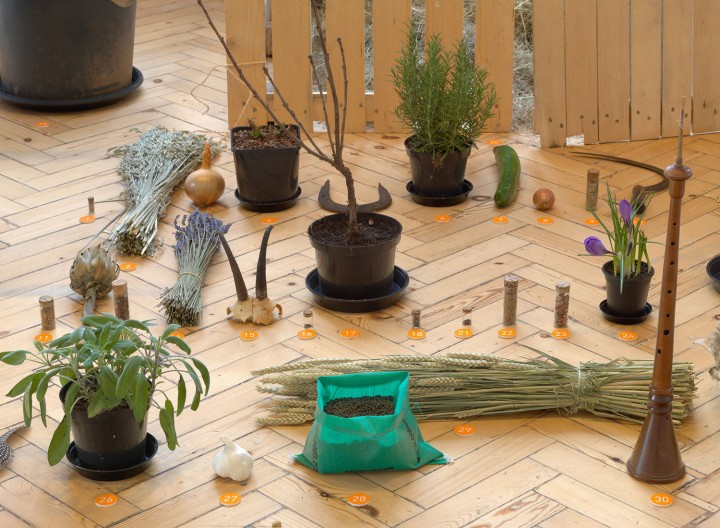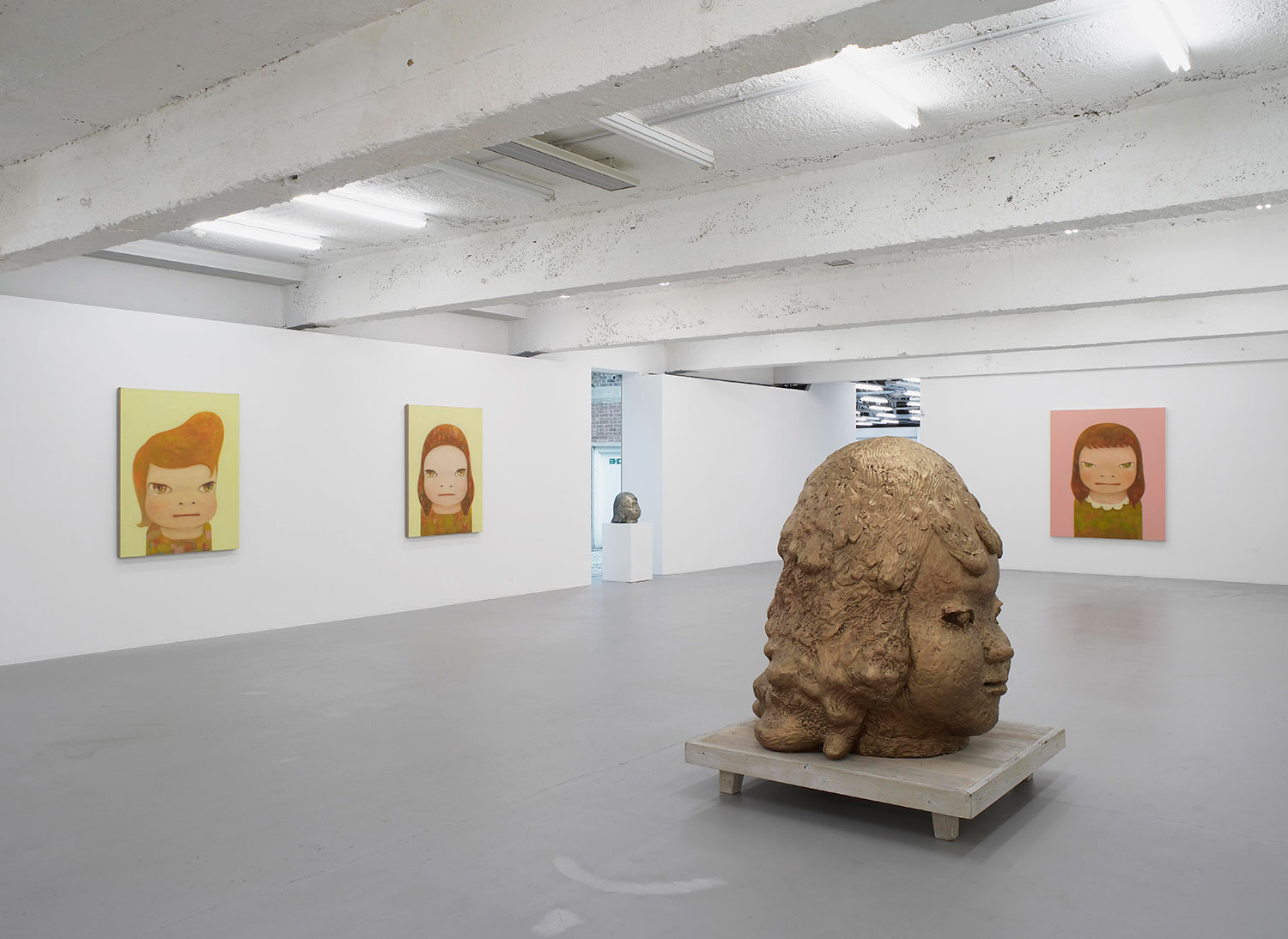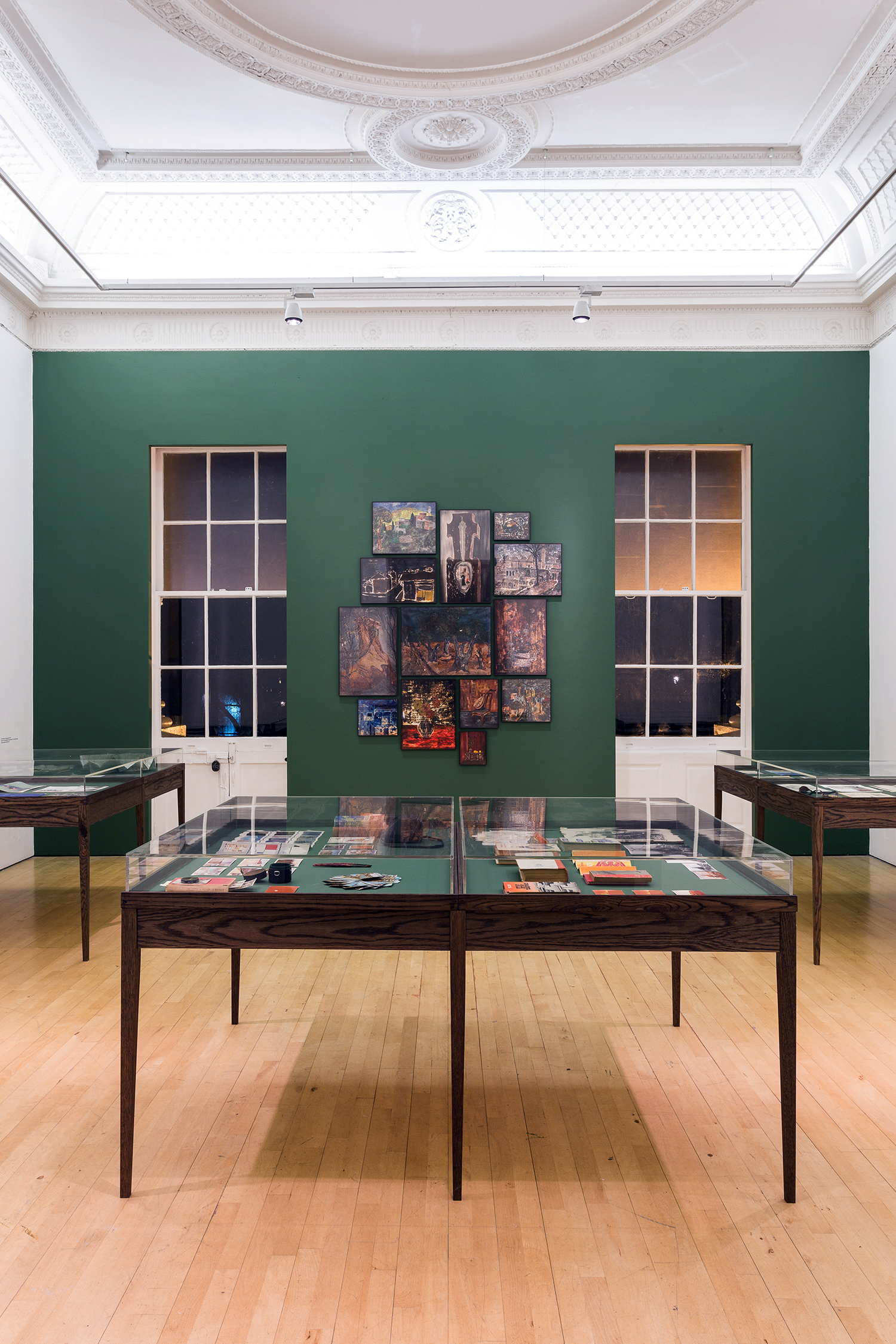In 1793, during the French Revolution, the French government introduced the French republican calendar — part of a widespread nostalgia for the rationalism of the Enlightenment era that also included a new legal and social order and the founding of a measurement system that would eventually become the metric system. The French republican calendar is the subject of Ruth Ewan’s exhibition at Camden Arts Centre.
A system of symbols and icons to represent each day of the new calendar, all related to nature and agriculture — the ubiquitous cultures of 18th-century France — was produced in collaboration with artists and horticulturalists. The days are grouped into twelve thirty-day months, each comprising three ten-day weeks, and given new naturethemed names inspired by the weather or season (Harvest, Rain, Frost, Fruit).
Ewan has collated all 365 items featured, and she has arranged them in a thoroughly museological display. The notion of the calendar as a collaborative art project is foregrounded, and the efficacy of her task becomes comically pedantic — where a date is represented by Carp (25th Flower), a large plastic bucket of water houses a carp.
Row upon row of variously sized and colored plant trimmings and agricultural tools line the gallery’s perimeter, and gallery-goers shuffle round clockwise, printed calendar in hand, examining the items. Months are color-coded, and numbered dots sit adjacent to every object: little petri dishes of salt, zinc, lead; cuttings of heather, fir, sugar maple; an axe; an animal pen; an almond.
A red clock presides over those reading the wall text. At face value the show can seem close to the monotony of a ticking clock, but under closer scrutiny it becomes apparent that this clock, something so familiar and mundane, is in fact a decimal clock — a radical and fundamentally revolutionary reappraisal of a deeply established system. With her rigorous collation of specimens and antiques, Ewan invites her audience to reimagine even the most basic notions and to ask what revolution could mean for each of us.



